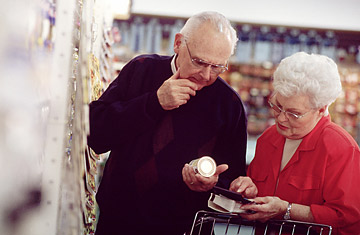
Remember the Volkswagen Scirocco? Didn't think so. Ever go out of your way to shop for Xylitol? Not lately, right? And it's a pretty safe bet you don't know too many people named Eleutheria.
It's not just that all of these names are a nuisance to spell and a mouthful to pronounce — though they are. It's that they strike us as downright dangerous. That, at least, is the conclusion of a new study published in the journal Psychological Science — and it's a study that ought to give pause to any manufacturer with a product to brand or parent with a baby to name. (See the top 10 medical breakthroughs of 2008.)
It's no secret that people like shorthand names. Bartholomew almost always becomes Bart, Alexander gets squeezed down to Alex and Margaret — inexplicably — turns into Peggy. Coca-Cola had barely dented the national consciousness before it was compressed to a short and sweet Coke. Ditto the National Biscuit Co., which sounds like a place that manufactures dog chew toys — until you abbreviate it to the scrumptious Nabisco.
But what psychologists couldn't determine for sure is why we're so drawn to brevity. Is it nothing more than laziness — why master Salvatore when Sal will do? — or is something else involved? To study that, University of Michigan psychologists Norbert Schwarz and Hyunjin Song devised a test. (Read "Are Direct-to-Consumer Drug Ads Doomed?")
Recruiting a sample group of students, the psychologists presented each participant with a list of what they said were food additives but were in fact dreamed-up words that simply had a chemical sound to them. All of the names were 12 letters long, but not all of them were equally easy to pronounce — running from the relatively phonetic Magnalroxate to the tongue-cramping Hnegripitrom. The students were then told to rank the additives according to how dangerous they believed they were to consume. As the researchers suspected, the more challenging it was to say a chemical's name, the more novel — and less safe — it was thought to be.
